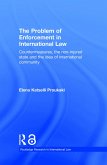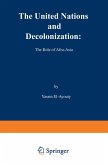This book attempts to address an important question: where is the European project going?
As Europe struggles with the most profound economic and social crises in recent history, what happens to the promises of freedom, democracy, equality and respect for the inviolable and inalienable rights of the human person proclaimed in the Preamble of the Treaty on European Union? How does the European Union intend to demonstrate its commitment to fundamental social rights at a time of widespread deregulation and an increasingly precarious labour market? How can we further enhance the democratic and efficient functioning of European institutions when there is a growing distance between citizens and political elites?
This publication is based on papers given at the international conference «Citizenship and Solidarity in the European Union - from the Charter of Fundamental Rights to the Crisis: The State of the Art», which took place in the School of Law at the University of Minho, Portugal, in May 2012. The line-up of contributors includes scholars from southern and northern Europe and Brazil, and together the papers constitute a lively and productive debate about the future of Europe.
As Europe struggles with the most profound economic and social crises in recent history, what happens to the promises of freedom, democracy, equality and respect for the inviolable and inalienable rights of the human person proclaimed in the Preamble of the Treaty on European Union? How does the European Union intend to demonstrate its commitment to fundamental social rights at a time of widespread deregulation and an increasingly precarious labour market? How can we further enhance the democratic and efficient functioning of European institutions when there is a growing distance between citizens and political elites?
This publication is based on papers given at the international conference «Citizenship and Solidarity in the European Union - from the Charter of Fundamental Rights to the Crisis: The State of the Art», which took place in the School of Law at the University of Minho, Portugal, in May 2012. The line-up of contributors includes scholars from southern and northern Europe and Brazil, and together the papers constitute a lively and productive debate about the future of Europe.
«This is an important book because of the questions it tackles and the answers it brings. There is absolutely nothing politically correct about it. It is also very innovative from a number of different perspectives, as well as in the analysis and ideas that shape the 29 contributions contained in this publication.» (Michel Theys, Bulletin Quotidien Europe 11121, 2014)








